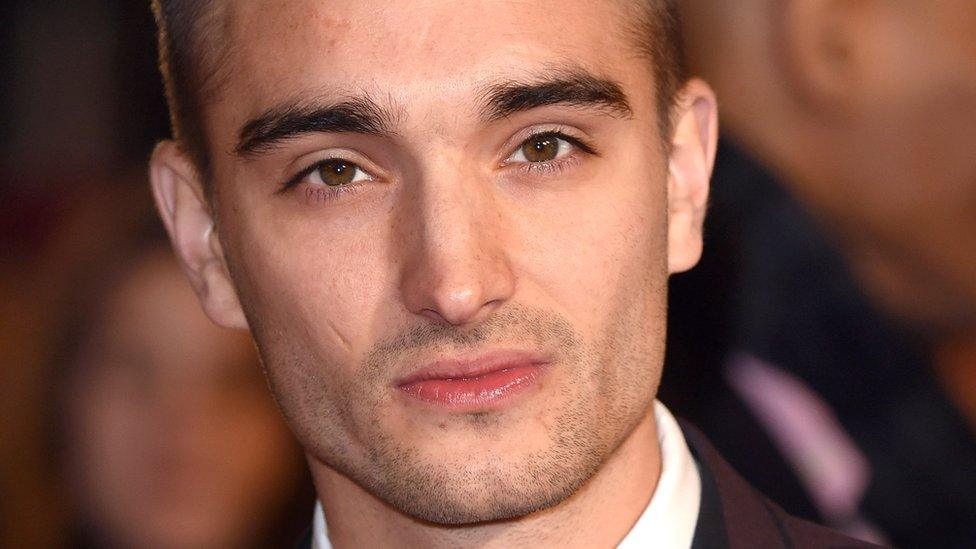Glioblastoma: Laura Nuttall and Tom Parker's mothers meet
- Published
The moment two grieving mothers meet for the first time
As they cross the car park, the two mothers, who were strangers until moments ago, hug.
"I wish we didn't have this in common," says Nicola Nuttall. "I wish it was something nicer."
They haven't met before, but they have one awful thing in common, the loss of their children.
On the face of it, their children's lives could not have been more different.
Nicola's 23-year-old daughter Laura was a Manchester University graduate, from Barrowford in Lancashire, and Noreen's son was pop star Tom Parker, a member of boy band The Wanted.
But they both died from one of the most aggressive forms of brain cancer, a glioblastoma.
And it is this that brings these two mothers together - a shared desire to continue their children's legacies. To get better support, funding and treatment for this disease.
In October 2020, Bolton-born Tom announced he had been diagnosed with an inoperable brain tumour. He died 20 months later, survived by his wife Kelsey and their two young children.
"It's just such a shock that word brain cancer," says Noreen.
"I couldn't even say that word. Even now I struggle to say that word.
"Sometimes I feel like I'm going to lose my head, because I can't bear it, you know, the pain of it."
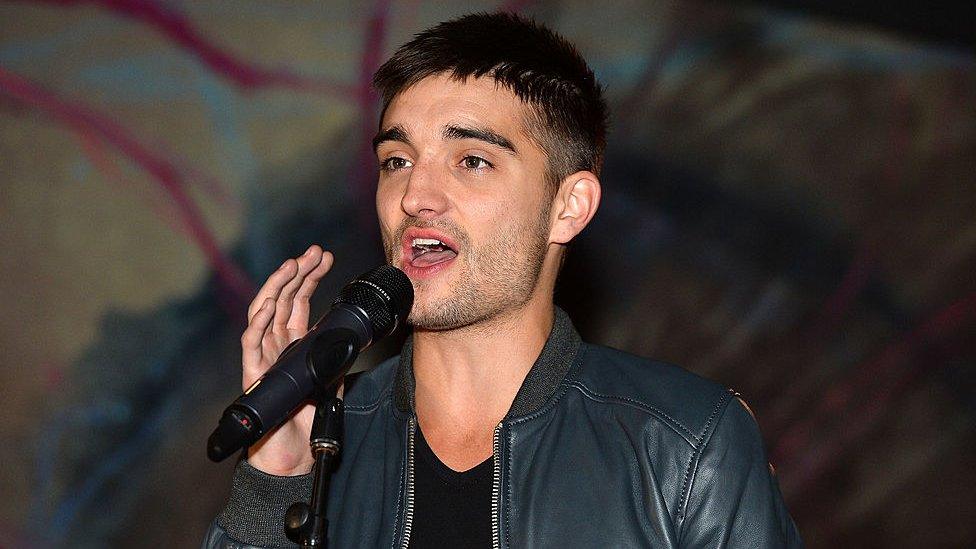
Tom Parker died in March 2022 aged 33
Noreen has only done a couple of media interviews since her son's death in March 2022.
She helped to organise the Walk for Hope to raise money for a cancer rehabilitation charity that helped Tom after his diagnosis.
It was Tom who was in the public eye, not her, so at first she is a little nervous, worried she will talk too much.
But within moments of meeting Nicola there is a clear bond.
"It's good to meet someone who has gone through it," says Noreen.
"Most people don't know what it's like," adds Nicola.
"With the best will in the world, they say, I know how you must feel, but they haven't got any idea."
Nicola's eldest daughter Laura was diagnosed in 2018, not long after going to university.
She was originally given 12 months, but lived until May.
Laura started a bucket list and ticked off some pretty impressive feats including meeting Michelle Obama, commanding a Royal Navy ship, and presenting a weather forecast for the BBC, to name but a few.
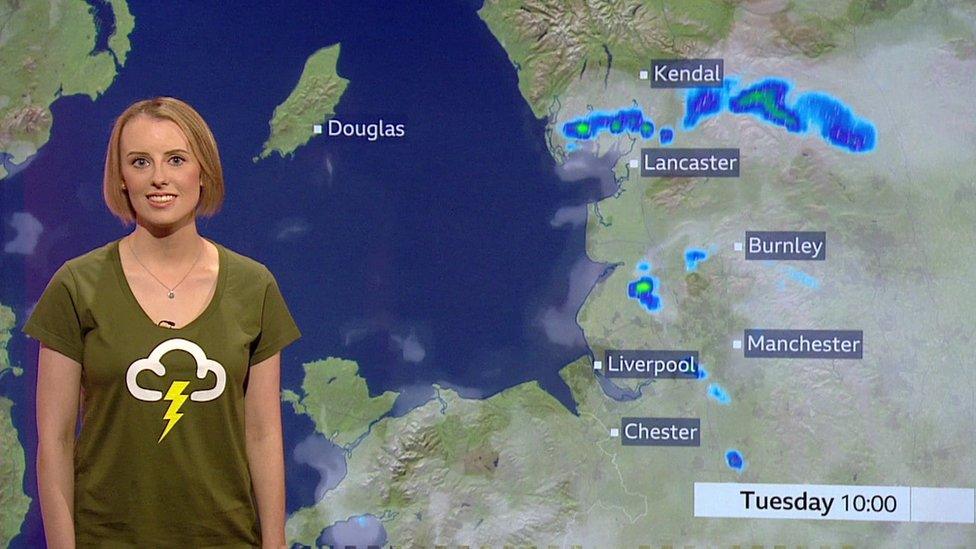
Laura presented the weather forecast on BBC North West Tonight
And, like Tom, she campaigned for more research and funding into brain tumours.
"When she was diagnosed she realised how hard people had to fight to be diagnosed, how underfunded this cancer was," says Nicola.
She says sometimes the publicity was hard, particularly when she heard Laura's voice on the radio on the day she died.
"I've no regrets about what we did. And if there's people now who know what glioblastoma is, and how underfunded it is, that didn't before, then we've done our job."
Glioblastomas are grade 4 brain tumours. The average survival time is devastatingly short - just 12-18 months.
According to Cancer Research UK, they are the most common type of cancerous brain tumour in adults, and remain the biggest cancer killer of children and adults under the age of 40.
Yet it is one of the most underfunded, with just one percent of the national spend on cancer research allocated to this disease.
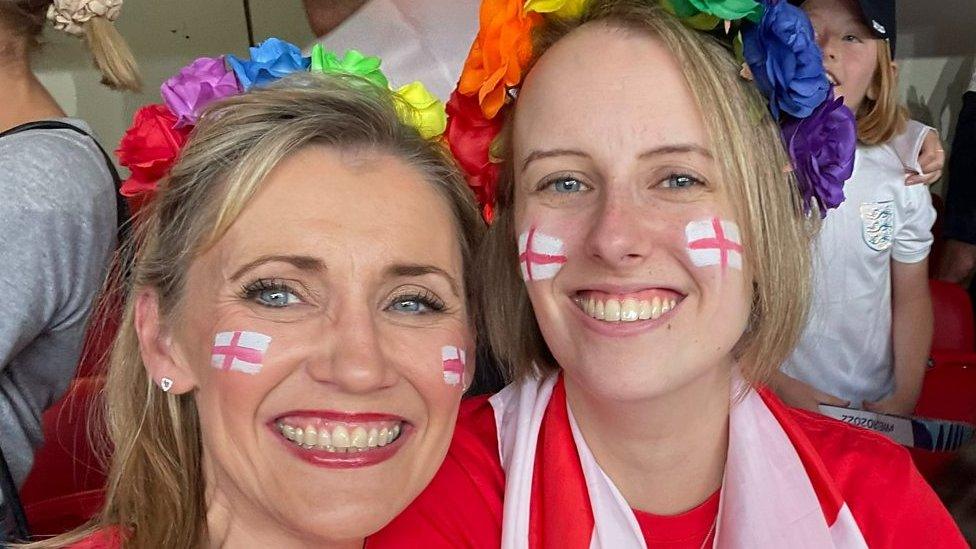
Nicola joined her daughter as she ticked off her bucket list of dreams
In 2018 the government promised £40m of funding for research into brain tumours. But as yet just £10.7m had been distributed to 13 charities.
In July, Health Minister Will Quince said the government invested in health research through the National Institute for Health and Care Research (NIHR).
He added: "The government is committed to funding high-quality brain cancer research, and we expect to spend more as new research progresses.
"The £40m announcement will remain available, and if we can spend more on the best quality science, we will do so."
But Nicola and Noreen share a frustration that they and their children had to find and fund their own alternative treatments, when the conventional ones ran out.
The family raised money to take Laura to Germany for experimental immunotherapy - a treatment in which a personalised vaccine is made from each patient's own dendritic cells.
They are convinced this helped to prolong Laura's life.
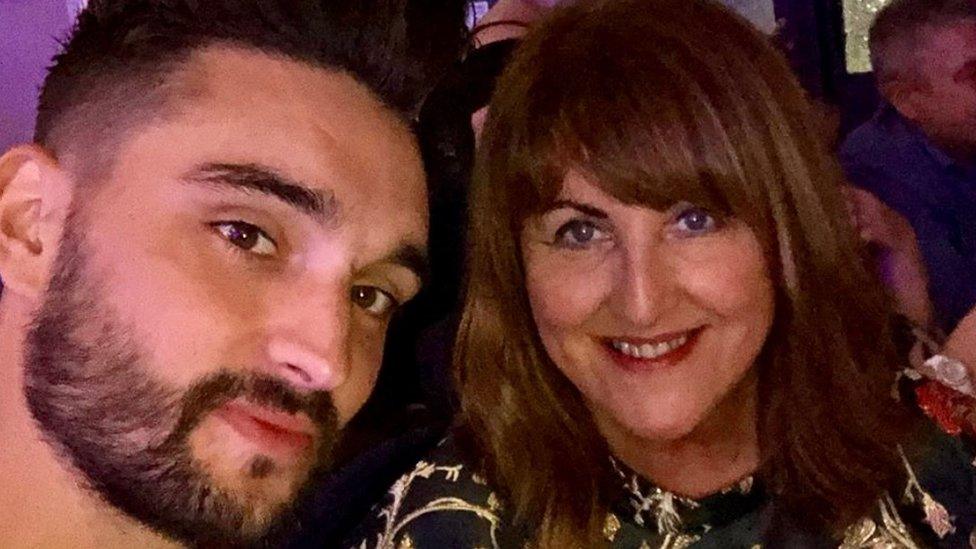
Noreen says as a parent "you do anything you can"
Tom and his family also carried out research into different treatments to give the young father more time.
"You have to fight, you have to do all that research," says Noreen.
"As a family we did it, Kelsey was doing it, Lewis [his older brother] was doing it.
"Everyone was trying to find anything, because obviously as a parent, it's your job to make your children survive and to live and you do anything you can."
Nicola and Noreen say they will now keep in touch.
They have heartbreak in common, but as Nicola puts it they also have a "furious energy" to make things better for people like Laura and Tom.

Why not follow BBC North West on Facebook, external, Twitter, external and Instagram, external? You can also send story ideas to northwest.newsonline@bbc.co.uk, external
Related topics
- Published7 August 2023
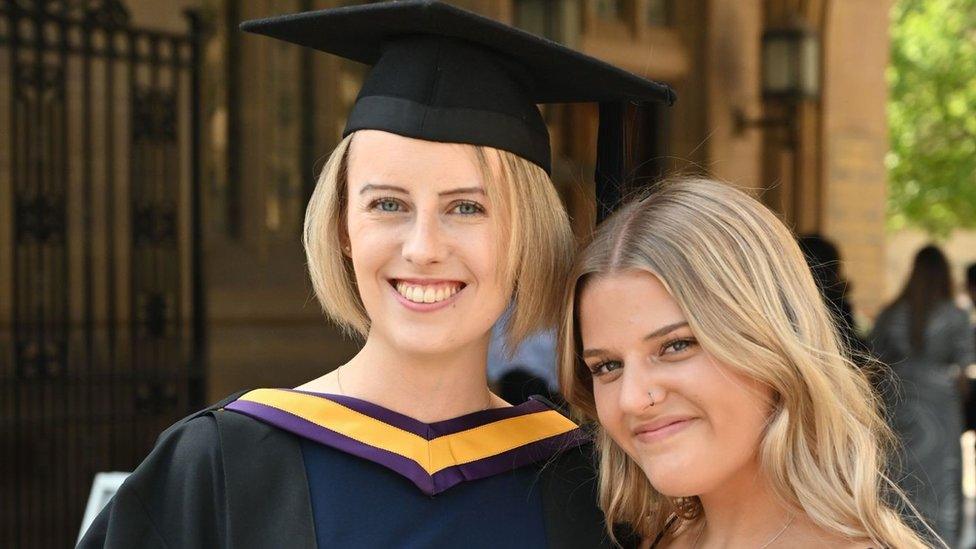
- Published2 August 2023
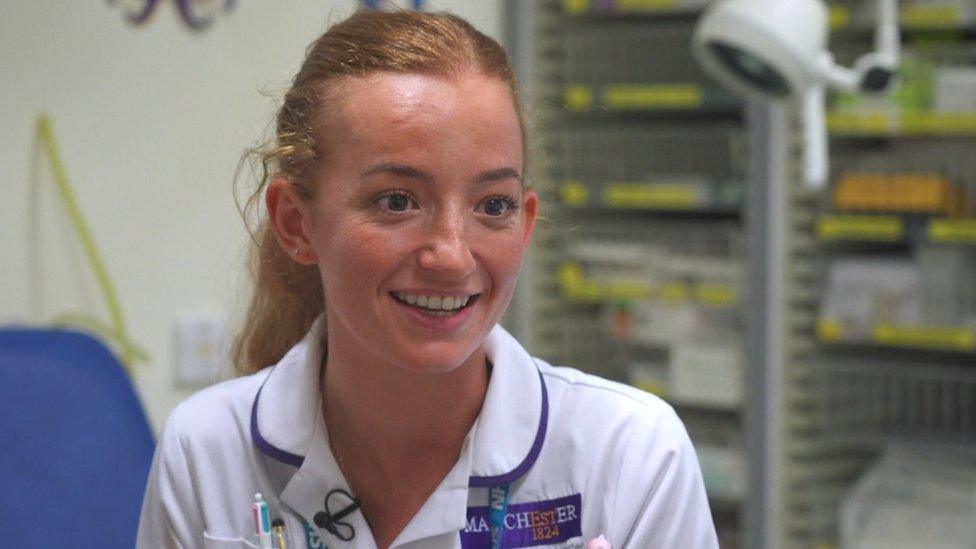
- Published26 June 2023
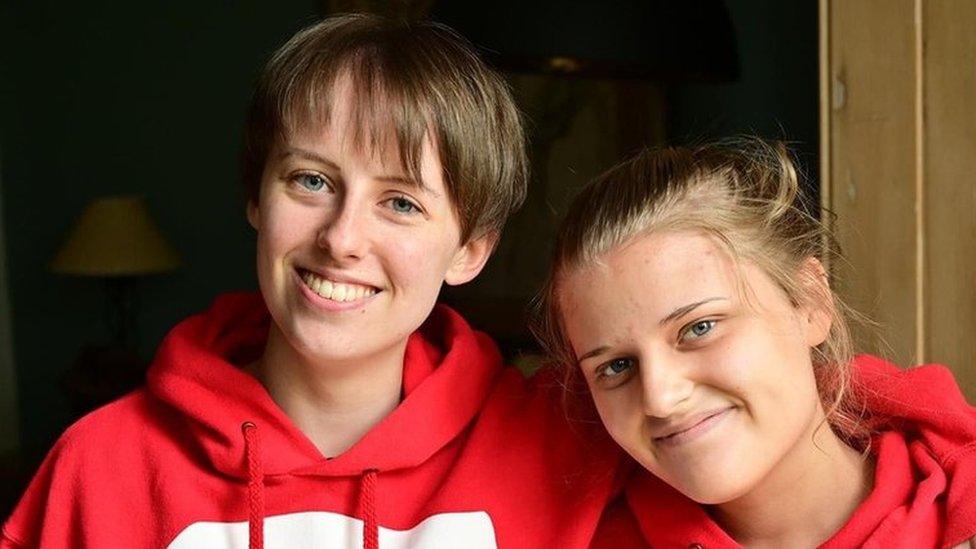
- Published5 June 2023
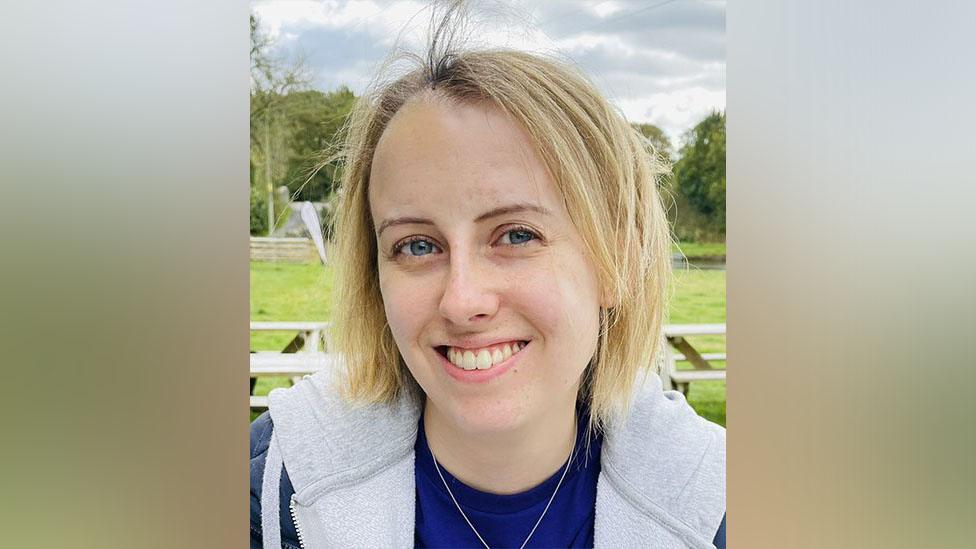
- Published23 May 2023

- Published22 May 2023
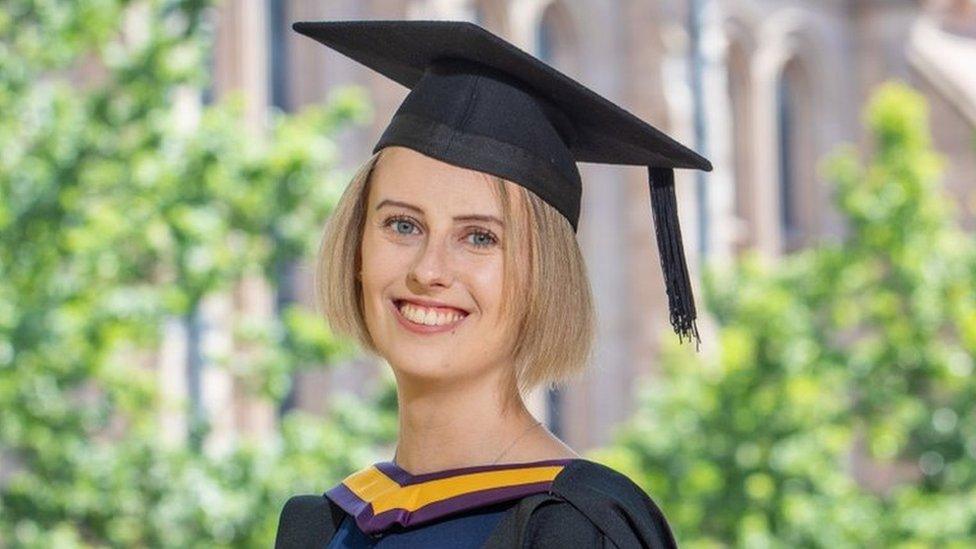
- Published31 July 2022
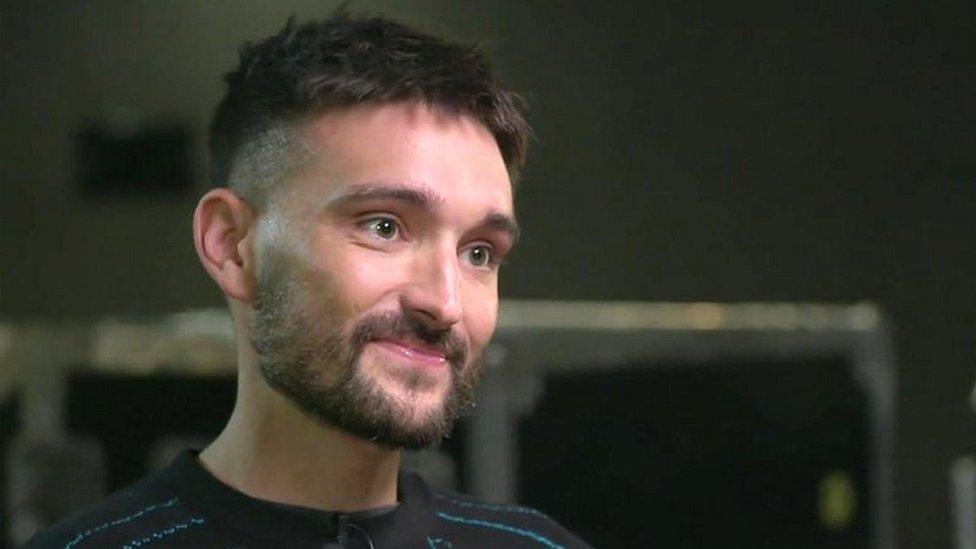
- Published1 July 2022
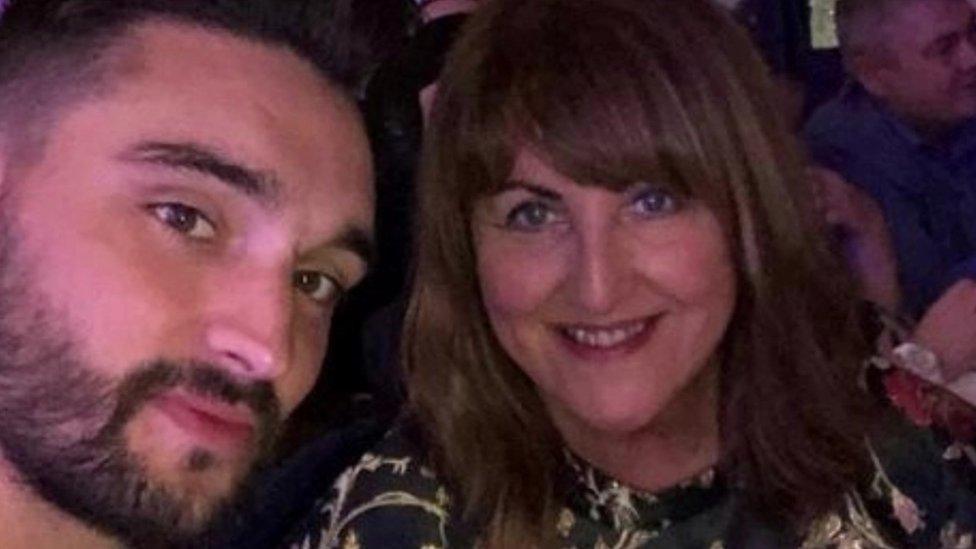
- Published30 March 2022
